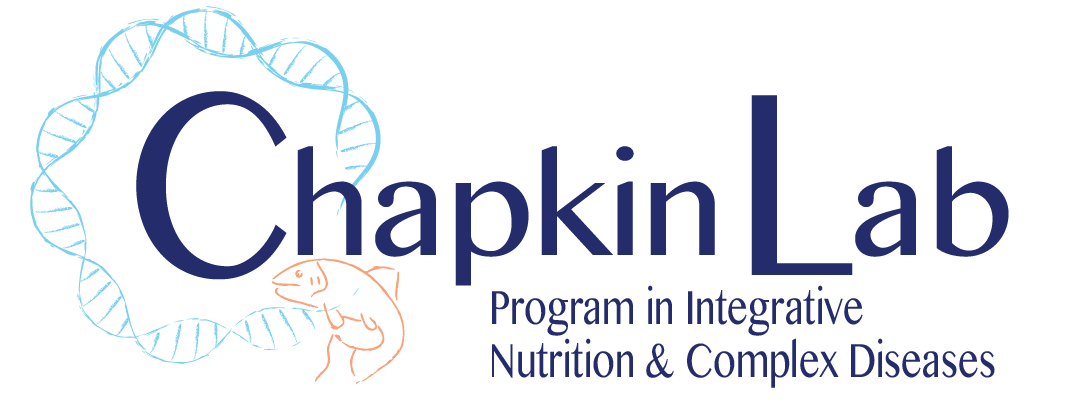Novel noninvasive method allows for precise diagnosis of feeding intolerance severity
Texas A&M AgriLife researcher receives $4 million grant to study feeding intolerance in preterm infants
For infants, especially those born prematurely, nutrient absorption and proper development go hand in hand. However, no precise measures or clinical tools exist to measure nutrient absorption or to reliably differentiate between benign and life-threatening symptoms in the preterm infant.

When an infant has symptoms that suggest trouble digesting milk or formula, physicians work to rule out worst-case scenarios such as severe intestinal injury or necrotizing enterocolitis, NEC. A clinician’s response may involve stopping tube feedings, ordering serial abdominal radiographs and initiating broad-spectrum antibiotics. These interventions, however, could threaten an infant’s growth, gastrointestinal microbiome and neurocognitive development.
To test an intervention without these side effects, Robert Chapkin, Ph.D., Allen Endowed Chair in Nutrition and Chronic Disease Prevention, Department of Nutrition and Department of Biochemistry and Biophysics in the Texas A&M College of Agriculture and Life Sciences and Texas A&M AgriLife researcher, will lead research to apply a noninvasive method developed by the Chapkin lab.
New grant to assess neonatal gut
The novel method developed by Chapkin enables researchers to assess the intestinal physiology of a baby, including an accurate determination of their nutrient absorption. By examining the intestinal cells exfoliated in the baby’s feces, clinicians will be able to noninvasively assess neonatal gut, which is the primary site of nutrient absorption and the host immune system. This assessment might help eliminate more limited or potentially harmful treatments.
“Believe it or not, clinicians basically still don’t really know what’s going on in these babies,” said Chapkin. “We developed a noninvasive methodology where we capture gene expression information, i.e., an mRNA molecular fingerprint, from intestinal cells that are exfoliated into the fecal stream.”
Chapkin and his research team recently received a new five-year grant from the National Institutes of Health, NIH, for this project. The $3.9 million grant will help researchers assess the nutritional and clinical predictors of intestinal maturation and feeding intolerance in the preterm infant.
“This is the evolution of a long collaborative process where we are focusing on nutrition in newborn babies and, to some degree, babies who are born extremely premature,” said Chapkin. “The question is, what sort of nutrition do these children need for optimal health?”
Sharon Donovan, Ph.D., Hagler Scholar, professor, Melissa M. Noel Endowed Chair in Nutrition and Health, and director of the Personalized Nutrition Initiative, University of Illinois Urbana-Champaign, is helping lead the grant.
Additional collaborators include Camilia Martin, M.D., division chief of neonatology, Weill Cornell Medicine; Sarah Taylor, M.D., professor of pediatrics and chief, section of neonatal-perinatal medicine, as well as director of clinical research, Yale School of Medicine; and Ivan Ivanov, Ph.D., research professor, Texas A&M University Department of Biomedical Engineering, and clinical professor, Texas A&M Department of Veterinary Physiology and Pharmacology.
Noninvasive method
Feeding intolerance is a common occurrence in preterm infants and can signal a range of problems from minor issues to more serious ones like NEC. Determining the severity of a feeding intolerance is difficult, however, because clinicians are limited in the invasive tests they can perform on infants.
“We have some degree of knowledge what is in their gut, but we really don’t know how the baby is responding,” Chapkin said. “You can’t do a blood draw on these babies unless you have very specific protocols that are being approved because it is considered a highly vulnerable population.”
That is where the work of Chapkin’s research team and its noninvasive “precision exfoliomic” methodology come into play.
Chapkin said the team captures gene expression information from cells that are exfoliated or released through a normal process. The cells enter the fecal stream, where feces resides along with trillions of microbes. The cells are eventually passed naturally by the baby.
“We get molecular signatures, or biomarkers, on the baby in real time, and we are looking for information that will tell us what is going on in the baby’s immune system and if it is a normal healthy baby,” Chapkin said.
About the Chapkin lab
Chapkin’s research has been continuously funded by the NIH for the past 35 years. Research in his lab focuses on dietary and microbial modulators related to the prevention of cancer and chronic inflammatory diseases.
-30-MEDIA INQUIRIES
Laura Muntean
laura.muntean@ag.tamu.edu
601.248.1891

Tim Schnettler
Tim Schnettler is a Web Communications Specialist with Texas A&M AgriLife Communications.
